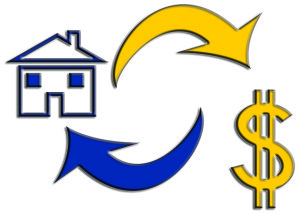We have all seen the advertising about reverse mortgages. But what many people do not appreciate is that Reverse Mortgages – Lose Your Home could you lose your home? The advertising paints a nice, rosy picture of older adults unlocking the value of their homes, receiving cash every month, and living long, comfortable lives. It could be true, depending on how long you live. This reverse mortgage is a loan and must be repaid at some point. If you die after a few years and your heirs sell your home, they must repay this loan. They can repay the loan if the house has sufficient equity. But what if there is not enough equity? Or what if you live longer than you expected?
Reverse Mortgages – Lose Your Home
The bottom line is that a reverse mortgage is a loan. If you draw on the equity in your home for many years using this tool, there will be nothing left in terms of equity in your home. It is worse if your home’s value declines.
Consider the following situation. Let’s assume the homeowner is 70 years old and life expectancy is another ten years. Their home is fully paid off. They want to stay home but need money to continue their residency. They take out a reverse mortgage for ten years and enjoy using their money to do many things that older adults like, including paying for health expenses.
After ten years, the reverse mortgage ends, and the loan becomes due. They can make monthly payments of interest plus principle. However, if they are on a limited fixed income, they may need more cash to make these payments. Faced with this situation, the only thing they can do is sell their homes.
This Reverse Mortgages: Lose Your Home scenario is possible for many people. Before you agree with this type, take a good look at your finances, lifestyle, longevity, and what you will do at the end of the reverse mortgage term. Many of the ads are misleading. Have a financial adviser review your situation and prepare recommendations. If you are still deciding about the recommendations, get a second opinion!
